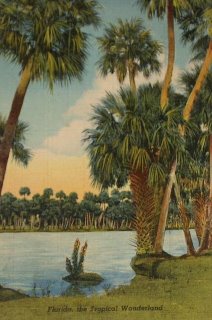 Tomates and peppers. I planted the new seeds that I bought by mail order in december (Hybrid tomatoes including Supersweet 100, Lemon Boy, Better Boy, and Heirloom tomatoes including Ponderosa Red, Black Krim. Also some older seeds, Supersweet-100 about 1-year old, and 1-year old seeds of Black from Tula and Cherokee Purple. There were also peppers, including mail order Bulgarian Carrot and Portugal Hot, and older seeds including some old peppers that Ning had in the kitchen. Ning's peppers were brought from China about 8 years ago, and I grew some about 2 years ago but did not save seeds from those. So this is starting over again. The peppers were in a kitchen cabinet in an old zip-lock bag. Will they grow? Also a 3-year old packet of Tabasco peppers.
Tomates and peppers. I planted the new seeds that I bought by mail order in december (Hybrid tomatoes including Supersweet 100, Lemon Boy, Better Boy, and Heirloom tomatoes including Ponderosa Red, Black Krim. Also some older seeds, Supersweet-100 about 1-year old, and 1-year old seeds of Black from Tula and Cherokee Purple. There were also peppers, including mail order Bulgarian Carrot and Portugal Hot, and older seeds including some old peppers that Ning had in the kitchen. Ning's peppers were brought from China about 8 years ago, and I grew some about 2 years ago but did not save seeds from those. So this is starting over again. The peppers were in a kitchen cabinet in an old zip-lock bag. Will they grow? Also a 3-year old packet of Tabasco peppers.The paper cups were left over from last year, as was the seed starting medium (looks like about 3/4 peat moss and 1/4 perlite). The cups have holes drilled in the bottoms.
 Here they are planted in the windowsill, south window. These little paper cups last about long enough for the plants to outgrow them, then basically fall apart. That's fine, they can be composted.
Here they are planted in the windowsill, south window. These little paper cups last about long enough for the plants to outgrow them, then basically fall apart. That's fine, they can be composted.I thought that I was showing some self-discipline by waiting until today to plant them. Then I looked at last year's entry - they were planted March 25th. So about the same time.
Here is a gardenweb thread on old seeds. Some writers had seeds much older than these, in worse storage conditions, and they apparently germinated and grew. Here is someone who used 5-year old tomato seeds, with 35 of 40 varieties germinating. Here are some 120 year old seeds at Michigan State - fine, if you want Verbascum (but also hopeful for other types of seeds). They were placed in sand in bottles and buried - not exactly optimum storage for seeds, but who would have known, 120 years ago? Of course, there is the famous Judean Date that was sprouted after 2000 years in desert-dry storage. I did a search on the resultant palm, and 3 years later, it is still growing, and is 14 inches tall. According to the article, if it is female and if its DNA hasnt been damaged in it's 2000 year storage, it is expected to bear in about 2010. Maybe. Oh - here's another article about the Methusaleh palm. according to National Geographic, it was 3 feet tall in 05. I'm not sure about the discrepancy. Then there are these 500-year old canna seeds that germinated. They had been used to make a rattle, by native peoples of Argentina in about 1420. Here is the wikipedia artical on the oldest viable seed.

